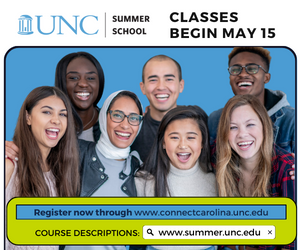Kierra Leggett | Editor-in-Chief
Members of the NCSU Black Alumni Society are dissatisfied with the current status of black unity on N.C. State’s campus.
This dissatisfaction was expressed last Wednesday in a series of rabble-rousing tweets sent from the BAS Twitter page by BAS Treasurer, Anthony Norman.
Norman tweeted, “ The #RENAISSANCE of #NCSUBLACKUNITY needs to happen,” and “AA peer mentors, have you called, texted, FB’d, or even tweeted your mentee today…this week…this month…THIS SCHOOL YEAR?!”
Norman jostled students with hypothetical situations and questions tweeting, “How do you think Dr. Augustus M. Witherspoon would feel about the state of #NCSUBLACKUNITY or Tony Williamson?” and “What if I told you NCSU’s BLACK STUDENT’S BOARD no longer existed?”
When Norman tweeted NCSU alumnus and legendary music producer, Patrick Douthit, also known as 9th Wonder, asking him how he would feel to know that “#NCSUBLACKUNITY is truly questionable right now,” Douthit responded, “I don’t have enough characters on Twitter to explain it. You may need to do a forum on campus.”
He continued, “I’m not very surprised; what cultural art form do they have as a model? We were lucky we had “A Different World.”
Though he graduated in 2000 with a B.S. in both Accounting and Business Management, Norman has remained active in the N.C. State Community. His activism on campus as a member of BAS and the Alumni Mentor Program led to his call for the NCSU Renaissance of Black Unity.
During the most recent AMP meeting on Jan. 29, it was brought to the attention of BAS members that black unity on N.C. State’s campus is lacking. “Leaders of black organizations who put on different productions, functions, and programs shared with us that there has been poor turnout at programs aimed at African American students,” said Norman.
Along with the decreased turnout to peer sponsored events, Norman feels that students lack knowledge of administrative happenings within the NCSU black community, which is “chipping away at things that prior students established.”
Norman’s tweets from the BAS Twitter account generated a great deal of response on and off the social media site. Ashley Davis, a senior majoring in political science and President of Women Empowering Society Together (W.E.S.T) was not a fan of the BAS’ tweets. “ I think there were other ways that the issue of black unity and a renaissance could have been initially addressed. Alumni could have come to campus to talk about it,” said Davis.
While some students questioned the BAS and its decision to initiate a renaissance of black unity via Twitter, Norman felt that it was the ideal place, primarily because of the accessibility it provided. “With Twitter, we were able to gauge [student] responses to the things we were putting out there,” said Norman.
Students responded not only to the BAS’ tweets about black unity, but also to Nubian Message contributor, Vernon Holman’s article “I Just Be Chilling Though.” In his article, Holman singled out the Multicultural Student Affairs, Peer Mentor Program and the students involved saying, “Mentors seem to have only signed up to put something on their resumes, and not to truly give back.”
“That article was an overreaction of some freshman who’s mentor didn’t say ‘hey’,” said Davis.
Norman and other members of the BAS didn’t share Davis’s sentiments.
“Wednesday’s tweets were prompted by a couple of things,” said Norman. “What the Black Alumni Society heard at the AMP dinner and discussion were reciprocated in the article by Vernon. That combination of things gave birth to those series of tweets.”
According to Norman the renaissance of black unity mentioned in his tweets would consist of, “A revisiting of the spirit of camaraderie.” He would also like to see students revisit the “entire spirit that was apparent when students fought for the Nubian, a bigger space for the African American Cultural Center, and the peer mentor program.”
Though he is not opposed to the idea of a renaissance of black unity on campus, Jamael Harrison, a senior majoring in communication thinks it is a movement that should be spearheaded by alumni. “ I think it is the responsibility of the older generation to inform the younger generation so that we can follow suit and thus become a better cohort,” said Harrison.
Norman acknowledged this saying, “ The BAS can help begin this renaissance in two ways. One thing we could do is spark the conversation and put it in the forefront. The second way we can help is by making ourselves available to campus. We’ve already run the course; we are on the other side. What’s important is that students can continue.”
Former BAS President Stephanie Cogdell said,“ As alumni, we need to reach out, that’s the role of any child – parent or mentee- mentor relationship.”
Cogdell who during her time as an N.C. State student served as President of the National Pan-Hellenic Council and the African American Student Advisory Council credits a change in the caliber of students to what some have perceived as a lack of black student unity.
“We were smart, but students coming in now have a higher standard; they are more competitive.”
Cogdell attributes the privileges currents black students have inherited, such as the African American Cultural Center and Africana Studies to the perceived lack of black unity as well.
“We had a lot more to fight for,” said Cogdell, “ The struggle brings you together.”
Norman mirrored Cogdell’s assertions saying, “Struggle causes unity and…students just need a cause to rally around. If something were to happen like blatant cuts in African American funding or racism, I think the black student population would be quick to rally.”
Whether or not students are quick to rally, or catch on to the idea of a renaissance of black unity, Norman and the other members of BAS simply want current students to gain the most of their undergraduate experience.
“Ultimately we (BAS) want current students to have a positive experience at NCSU,” said Norman. “A positive experience in school prompts participation as alumni after school.”




